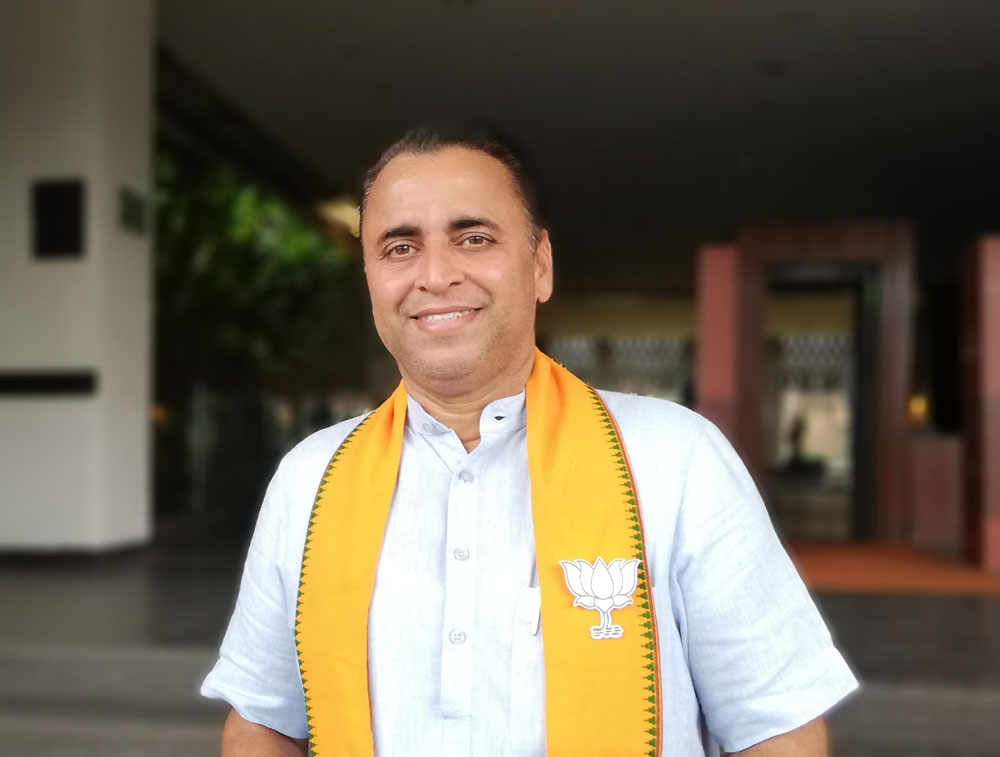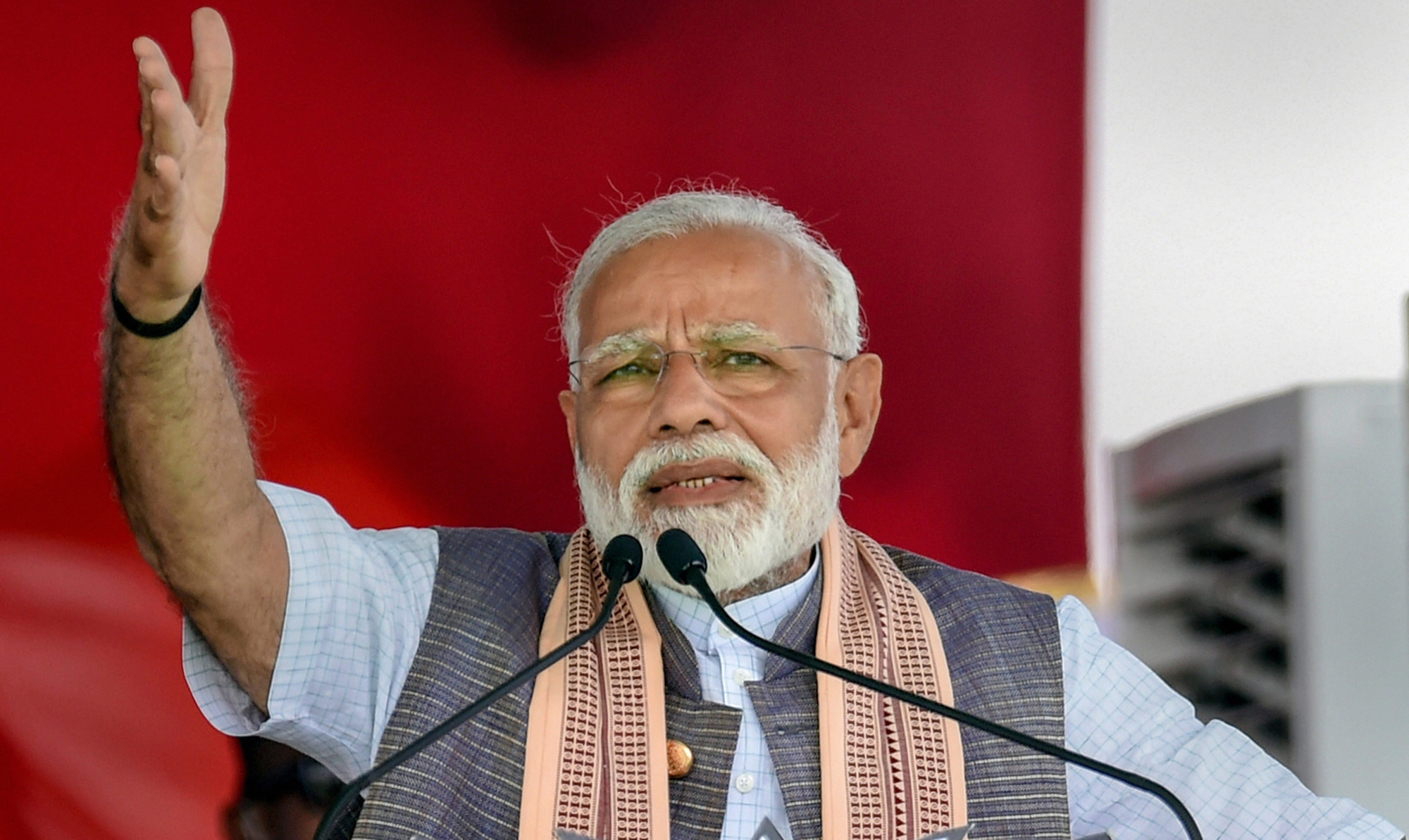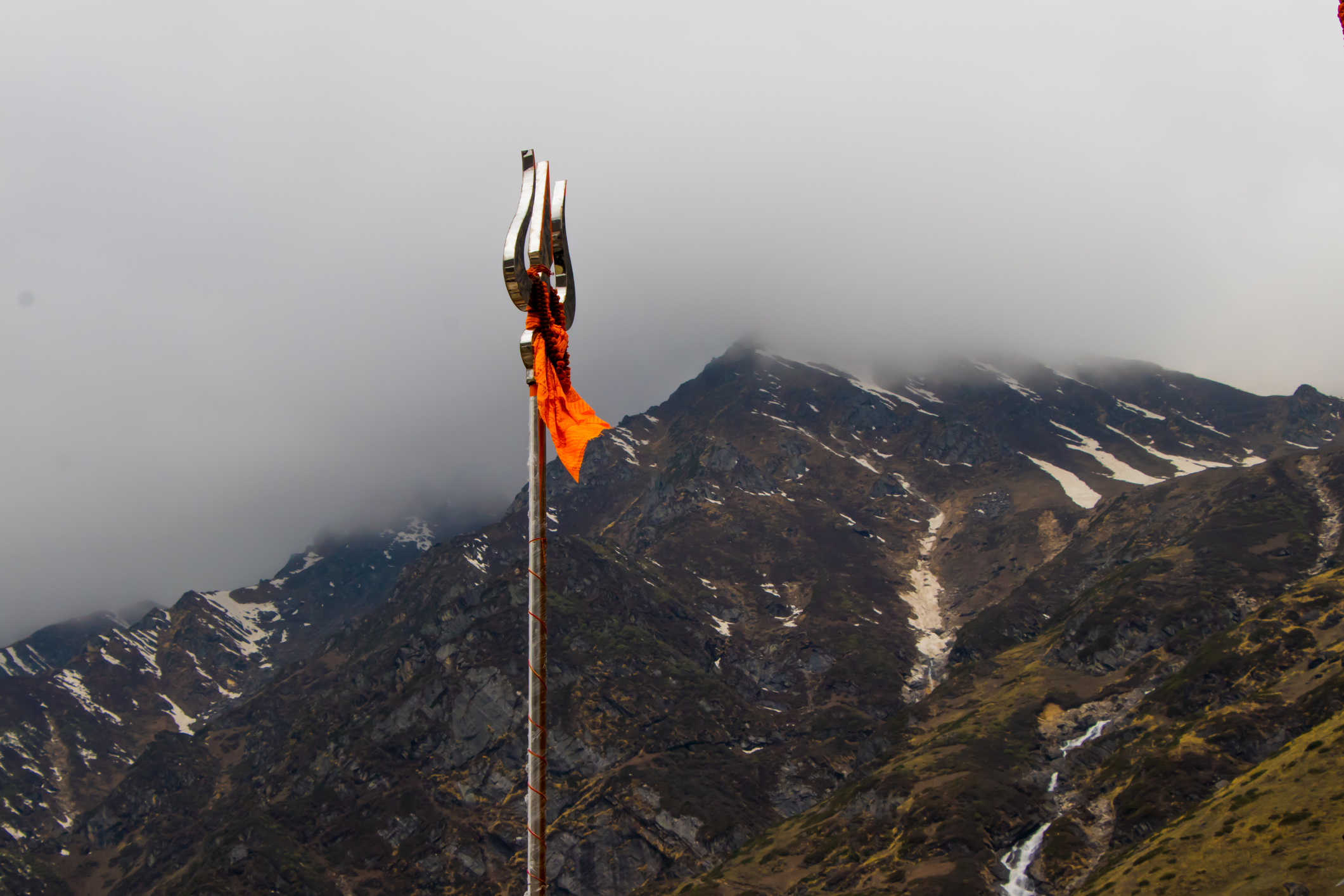If the Bharatiya Janata Party (BJP) wins in Bengal, the first credit will go to Mamata Banerjee,” says Sunil Deodhar. The RSS swayamsewak and national secretary of the BJP reached Bengal a little more than a week before Fani — the fabled cyclone that had Odisha, parts of Bengal, Uttar Pradesh, Andhra Pradesh and Bangladesh cowering. Deodhar was in Tripura till April 21 and before that he was in Andhra Pradesh. He is the BJP’s state in-charge in both places.
The day I fix the interview, Fani is looming. We are to meet for coffee and a conversation. But on the appointed day, Deodhar, who is in charge of the last leg of the Lok Sabha elections in Bengal, gets urgent summons to Agartala. The coffee stands cancelled but we talk on his way to the airport.
When we meet he seems restless, but it is a quiet agitation. No raising of voice, only this — where is the bag, is the bag in the car, where is the car, where is the bag. I use the time to take the photograph of him that must accompany this piece. He suddenly breaks into a smile and says, “Chaliye, recent photo hoga. Ek sau chaar kilo wala nahin,” referring to the fact that he has lost much weight since the Tripura Assembly elections in 2018.
His comment about Mamata Banerjee is in response to my question about why the people of Bengal should at all give the BJP a chance. Deodhar continues, “It is her political strategies, her vote bank politics, her personal bearing that have turned away the Bengalis from her and her party.” And now in the last leg, there is Deodhar. After all, did he not turn the polling booths in Tripura last year and Varanasi in 2014?
If the comment flatters him, there is no way of knowing. Without even a pause he says, “The real magic man is Narendra Modiji.” Really? And how is that? Deodhar replies, “His magic is in his humility. When he first entered Parliament as Prime Minister, he touched the ground with his forehead. Recently he washed the feet of the sanitation workers at the Kumbh Mela. But then again, his magic also lies in that he has the courage to take strict decisions for the country. Demonetisation was a strict decision. Balakot, Uri, launching the anti-satellite mission, all were strict decisions. He has not paid heed to any opposition.”
The car is now on the highway, and as it picks up speed, Deodhar glances discreetly at his white-and-gold wristwatch. He says, “Look, I respect Mamata Banerjee a lot. Besides I know what it takes to fight the Communists. When we fought in Tripura we were a national party, we had Modiji. But Mamataji had nothing with her.”
From complimenting Didi, he changes gear — he is now complimenting Bengal’s culture. And then organically he unleashes his politics, “And to think this great state, the birthplace of so many great men and women, has not yielded any names in the last 40 years that the world might sit up and take notice. But then, that is how the CPI(M) functions; stifles talent…”
From past perfect to a past tense, Deodhar keeps shifting gear dexterously, and suddenly he is talking about the tense present. He says, “Mamataji squandered the opportunity she had got. Bengal now is in a condition of uncontrolled goonda raj. It is not even in the control of Mamataji. The BJP-ruled states are in a far, far better condition.” He tells me he has learnt during his frequent visits how “elite Bengalis” are unhappy with the drama surrounding the CBI inquiry into the Saradha scam.
But what is the BJP promising Bengal? I tell him not everyone in the state is appreciative of the hate rant, the constant harping on the National Register of Citizens (NRC). Deodhar looks at the road ahead and before the silence can become uncomfortable, he says in a calm voice, “NRC is required to identify and deport illegal Muslim immigrants. NRC in Bengal would be good.” He elaborates, “The basis of Partition was sampradayik. Hindus did not ask for a separate country. Muslims did. So the Hindus who were staying in the then West Pakistan and East Pakistan have every right to come back to their own country and get citizenship.”
But is Muslim-bashing also part of the RSS-BJP ideology? He shakes his head vehemently. “That is a wrong perception about the RSS, BJP and even Modiji…” The Congress comes up. Pointing out how Muslims elsewhere have done well but in India, Deodhar alleges, the Congress fooled them.
All roads eventually lead to Bengal and its chief minister. He talks about how Banerjee tried playing Muslim votebank politics and ended up hurting Hindu sentiments. Deodhar says, “This is something the BJP has not done. We have not polarised the elections, it is she who started it.”
And why did the BJP give Pragya Thakur a ticket? “It’s symbolic. She has been pitted against Congress’s Digvijaya Singh. We want to make the two symbols stand up against each other and see what happens. He had coined the phrase “Hindu atankvad” and that is wrong. Hindus have never indulged in terror activities in the name of Hinduism.” Really?
Deodhar is from Maharashtra; Mumbai is his home. The day Rajiv Gandhi took oath as the Prime Minister of India, Deodhar joined an RSS shakha. But his father did not let him enrol to be a pracharak till he had completed his MSc. “It was his belief that if I became a pracharak before I had got myself an education, people would think I was doing this because I had no hope of getting a job.”
My second meeting with Deodhar is supposed to take place in the coffee shop of a five-star hotel. Fani has passed, it has spared Bengal. Deodhar has been told this place offers “Bangal ki chai” and “muri”. But it turns out to be another star-crossed assignation, for no sooner do we take our seats than he is summoned. Once again we are headed for the airport, but this time he has to receive the BJP president, Amit Shah.
I want to know if the BJP has turned so dogged in its pursuit of the Bengal voter because it anticipates a setback in the North. “Not at all,” says Deodhar. He adds, “No question of a setback. But Bengal is going to be bonus. Last time Uttar Pradesh was a shocker, this time Bengal is going to be a shocker.”
I tell him I have read that he mingled closely with the people of Tripura while he was working there. He learnt Bengali, began eating pork. What did he have to say about the BJP’s social media campaign in Bengal that called out non-vegetarianism and shamed fish-eaters? His reflex response: “If that happened, then it was wrong. I don’t support such things.” The very next minute he lightens the atmosphere and says, “How will Bengalis survive if they don’t eat fish? I intend to make a will stating that when I die, my body must be buried at sea for the fish to feed on, as I have fed on them all my life.” And what about beef?
This time he launches into talk about Hindu sanskriti, how it teaches one to be grateful and how we have much to be grateful for to the cow. But in Bengal cow slaughter is legal. He doesn’t bat an eyelid, “We will stop it. If the BJP government comes to power, cow slaughter will not be legal.” In effect, is he saying the BJP will impose a diet on the people? Deodhar replies, his voice silken, “Where the majority does not want to eat beef, we want to bring in laws and where the majority wants to eat beef, we will convince them not to. Hum talwar ke bal par gau raksha nahin karenge.” But wasn’t that what the cow lynchings were all about? Mohammed Akhlaq died, after all. He says, “No, no, these are lies. And if such a thing happened then let me clarify — the BJP does not support any such violence. Even Modiji doesn’t.”
Deodhar boasts of getting 20-25 seats from Bengal these elections. He says, “Unnis me half. Ikkis me pura saaf.” Meaning, in 2019 Trinamul’s seat count will be halved and in 2021 Assembly polls, it will be wiped out. But the BJP too must have lost faith in its state leadership, or why else would Deodhar be paradropped here last minute? He replies, “Since the election is happening phase-wise, as leaders become free of their given responsibilities, they are handed new ones. I asked Amit Bhai Shah if I should go to Varanasi, but he said, ‘Varanasi ki abhi zaroorat nahi hai, abhi Bangal me tum kam karoge to uska fayda hoga.’”
Amit Shah’s booth management skills are much talked about. Is he then Amit Shah’s Amit Shah? This time Deodhar looks straight into my eyes and says with equitable emphasis, “I am Sunil Deodhar. Amit Bhai Shah is my political guru. Narendra Modiji is my ideal. And I am grateful to Nitin Gadkariji who brought me into politics. I do have organisational skills but the credit of honing those goes to the RSS.”
We are nearing the airport and also the end of our chat. I ask if he has any political ambition for himself. He replies slowly, steadily, all steel: “Political ambition hai. Without ambition one cannot be in politics. But mine will never supersede the larger decision of the party.”
As he walks away with a namaskar, he reminds me, “Coffee baki raha.”












